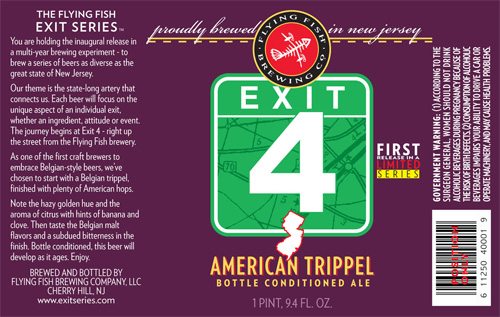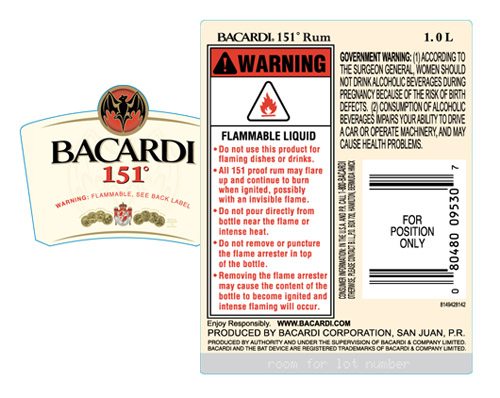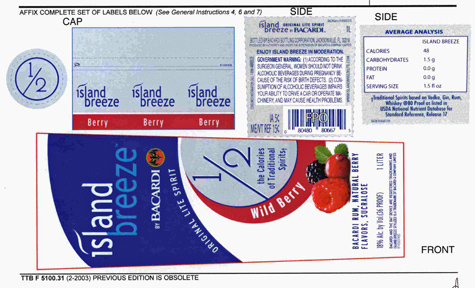TTB is not likely to allow anything labeled as “energy beer” anytime soon. But that doesn’t mean there is any shortage of beer tinged with caffeine. Notwithstanding the demise of Sparks and Tilt, there is a big upsurge in beers with added caffeine, guarana, tea, yerba mate — and coffee. Today, coffee. Pipeline Porter is made with 100% Hawaiian Kona Coffee according to the label. Joe is brewed with coffee, by Philadelphia Brewing Company of Philadelphia, Pennsylvania. Yeti is stout aged on oak chips with coffee added. The front label pretty much suggests serving it with breakfast. None of these labels mention energy, stimulants, caffeine, or the amount of caffeine, so the consumer is left to guess. My grandpa Joe never dreamed of beer mixed with coffee or any other alcohol beverage that would perk him up.
Continue Reading Leave a Commentlegally interesting/controversial
Energy Beer

Tags: caffeine/secondary effects, ingredients, legally interesting/controversial, policy
Phony Controversy Du Jour

Maybe the world is not in such a sorry state after all, if there is room for outrage about a few beers named after exits on the New Jersey Turnpike. Various media report that MADD was alarmed about Flying Fish Brewing Company’s new Exit 4 beer, named after the nearest highway exit. Google already has well over 8,000 hits for this puny controversy. MADD is apparently concerned about linking driving with drinking, or condoning the same. But even the most cursory review shows that the link here, and the impropriety, are tenuous to put it mildly. Speaking of tenuous connections, it will be difficult for Flying Fish to find a connection between the unique aspects of 29 exits, and 29 distinctive beers. This is well evidenced by Exit 11, the second in the series; the connection is that both relate to … a confluence. Plenty of other labels highlight a highway or exit. Side Pocket Foods has about 10 Exit 172 labels. This Weibel wine celebrates Route 66, and this Oak Ridge wine pays homage to Route 88. And here is Route 3 Chardonnay. There is no reason for MADD to be alarmed about any of them.
Continue Reading Leave a CommentIntoxicating Candy: Part Two

In the last post we showed a couple of bubble gum flavored spirits products. Today we have a handful of other candy-related alcohol beverage products, showing that there is no shortage of candy-themed adult beverages. Bols has Candy Cane Liqueur. Ferrin’s has Candy Apple wine. BPNC has a cotton candy cocktail. Baileys has a caramel liqueur. And Crater Lake has “Candy in a Bottle” wine. If the adults, ID, Warning and taste don’t stop the juveniles, maybe the over $10 price will.
Continue Reading Leave a CommentTags: legally interesting/controversial, policy, unlikely combinations
Highly Flammable Spirits

Bacardi revamped its 151 proof rum labels in May. At almost 76% alcohol, this rum is of course flammable as well as potent. The labeling includes not less than eight warnings to this effect. The bottle also includes a flame arrester. One of the main warnings says, “Do not use this product for flaming dishes or drinks.” It’s a little bit like a Maserati with a warning that you should not exceed 55 mph. We kind of thought flaming drinks were one of the main purposes for this product. If not, we went in search of the more conservative uses for this product. We found very little, with no trace of this product on Bacardi’s US website. This group seems to have no idea what to do with it either. At an even higher concentration of alcohol is Golden Grain Grain Alcohol. It is 95% alcohol and is also plastered with warnings throughout the front, back and neck labels. This is a rare example of TTB allowing warnings other than the specific health warning mandated by Congress (see this for an example of a warning not allowed). It’s hard to say the extra warnings are not warranted here.
Continue Reading Leave a CommentTags: business strategy, legally interesting/controversial, policy
F-Words, F-Bombs and Booze, Part 3

Way back in December of 2008 we ran Part 1 and Part 2. We didn’t really expect to see too many more variations on this theme, or that it could go a whole lot further. But alas we may have underestimated the frat-boy contingent of the alcohol beverage industry. Not that we think it does or should offend any “adult beverage” consumer. Perhaps the liqueur is Chinese and pronounced Fu-Chen. Perhaps the ale is German. It’s quite possible that our mind is in the gutter, and these labels have nothing whatever to do with sex, but we wouldn’t put any money on it. Lest anyone be unduly offended, I have two kids and I am pretty sure it would take something more than this to set them off kilter. The Fokker Ale is made by Azalea Coast Brewing, in Wilmington, North Carolina. The Fuchen Liqueur is herbal liqueur, imported by BPNC of Temperance, Michigan. We appreciate the irony that this liquor company is situated in Temperance of all places, and a lot of other people apparently felt the same way, as the company has recently changed its name to The Temperance Distilling Company.
Continue Reading Leave a CommentTags: legally interesting/controversial, policy, risqué, sexual, sin, speech, would you approve it?
Serving Facts on Bacardi Island Breeze

This Bacardi Island Breeze label blew in with a bang, in late 2005, and blew out quickly thereafter. Bacardi apparently had big plans for this “lite spirit.” The company booked Kim Cattrall for print and TV ads. But just a few years later, there is almost no trace of this brand or the ads. This label remains significant because it is one of the very few that refers to a Serving Size of 1.5 fluid ounces, and the “USDA National Nutrient Database.” TTB is moving toward requiring this information, in an expanded way, on all alcohol beverage labels. Diageo has pointed to this label and grumbled that it should be allowed to do something similar, too. This product is also one of very few using sucralose as a sweetener.
Continue Reading Leave a CommentTags: ingredients, legally interesting/controversial, policy, serving facts/allergens

